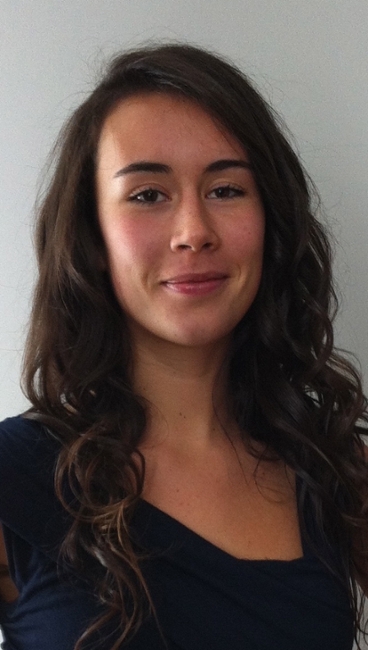
Bridging the gaps for newcomers to Canada
Katelyn Postnikoff is researching how Canadian newcomers are learning about, and accessing, healthcare services
By Marg SheridanFor Katelyn Postnikoff, research wasn’t something she’d intended on doing, but when an opportunity to look at how newcomers to Canada are accessing health care in their adoptive country came up, it was an opportunity she couldn’t turn down.
“I’m not really into the lab stuff,” Postnikoff laughed when asked about her research. “But I saw this project as talking to people, hearing a bit about their stories, and I felt like there was a real practical opportunity to make improvements in this area – so I wanted to be involved.”
Postnikoff is one of the 60 students taking part in the Dean’s Summer Research Projects, a program designed to help introduce medical undergrads to research by providing both funding and access to faculty supervisors. She is part of a team of researchers consisting of a Dr. Ronald K. Siemens (pediatric emergency medicine) as well as fellow medical student, Anastasia Zello, and research consultant Cara Spence Gress.
For Postnikoff, whose project is titled ‘Analysis of Health Care Gaps for Newcomers to Canada with Regards to Pediatric Emergency Department Visits,’ it’s been an opportunity to learn more about being a doctor.
“I think that (it’s) broadened my concept of what being a doctor is,” she explained. “There’s so much more you can do with these opportunities than just your job.”
The project itself focuses on understanding newcomer’s awareness of, usage of, and satisfaction with local health services. Those who have lived in Canada less than five years were eligible for the study. With some much-needed help from the emergency department staff at the Royal University Hospital, she decided to speak with the first 25 families to visit the pediatric emergency department who met the criteria as new Canadians.
“I’m at emergency on-and-off throughout the day, and the nurses’ page me if a family comes that they (have) identified as being new to Canada,” continued Postnikoff. “I ask them a little bit about their family, and then we go through a list of health services together: family doctor, walk-in clinic, emergency department, etc. For each one, I ask if they’ve heard about it, if they’ve used it, how often they’ve used it, how they accessed it - website, by phone, in person - and then their satisfaction with it.
“I do the same with a short list of social services, including the Open Door Society, Newcomer Information Center, and others that might have helped them to understand our healthcare (system).”
The goal of the study is to find out how newcomers are finding the appropriate healthcare service in the hopes to better disseminate information on the litany of ways they can get treatment. And while the research isn’t complete, Postnikoff is starting to see some trends that may help the city and province provide better, and more direct, information to this population.
“A main theme is that there’s no consistent way that people are finding out about health services,” Postnikoff said.
She’s finding that a lot of the patients are learning about services from family member who have lived here longer than they have, from a group that may have sponsored their move to the city or, if they’re students, through the University of Saskatchewan itself.
“There’s no centralized place for (them) to get the comprehensive overview of our health system,” Postnikoff continued. “How it works, and where to go and when – it’s kind of however you can find out what you can find out, that’s what you use.”
It’s also showing that for a lot of patients they default to the emergency room at one of Saskatoon’s three hospitals due to the waits at both walk-in clinics, and to get appointments with family doctors.
And finding a way to better disseminate the information on the health services and their function won’t just help the newcomers to navigate a foreign system, but it can help to take undue burdens on the emergency services by better directing patients. And despite her initial hesitancy, the research has been something Postnikoff has both enjoyed, and appreciated.
“If there’s an important question that you want answered the resources are there and you have the support to try and answer them – that’s been really encouraging for me.”
